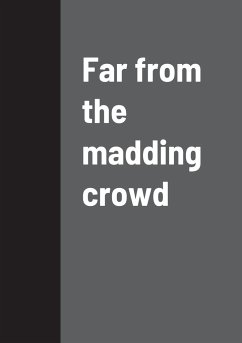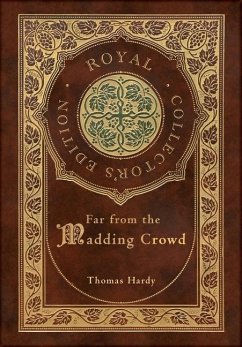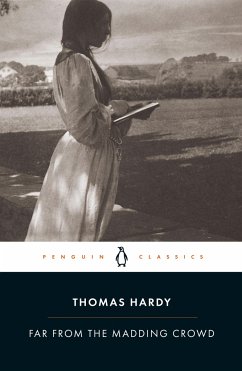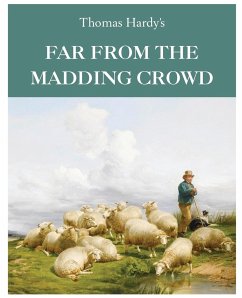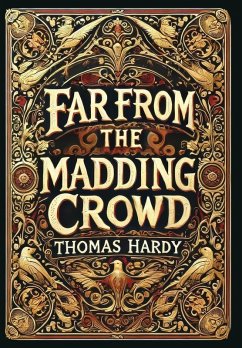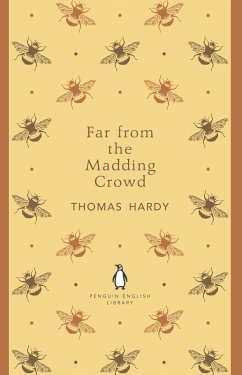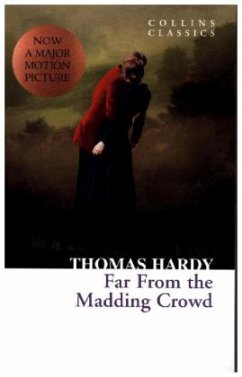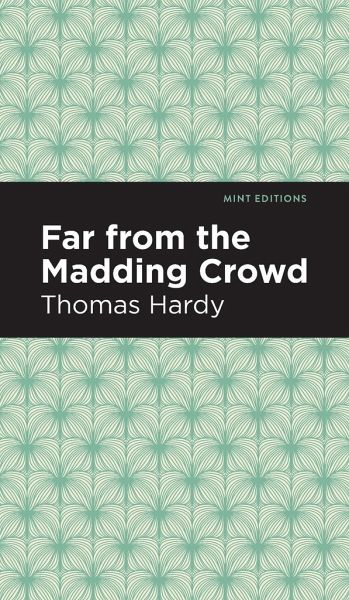
Far From the Madding Crowd
Versandkostenfrei!
Versandfertig in 1-2 Wochen
21,99 €
inkl. MwSt.

PAYBACK Punkte
11 °P sammeln!
"The greatest tragic writer among English novelists."-Virginia Woolf Far from the Madding Crowd is the first of Thomas Hardy's great novels, and the first to sound the tragic note for which his fiction is best remembered."-Margaret Drabble Far from the Madding Crowd, the fourth novel written by Thomas Hardy, is a pensive yet pastoral novel that initially appeared in serial form in the late 1800's. It has since become one of the most popular books of English literature, with its rich rhythms of rural life, beautiful and independent heroine, and romantic intrigue. In Wessex, the novel's apocryph...
"The greatest tragic writer among English novelists."-Virginia Woolf Far from the Madding Crowd is the first of Thomas Hardy's great novels, and the first to sound the tragic note for which his fiction is best remembered."-Margaret Drabble Far from the Madding Crowd, the fourth novel written by Thomas Hardy, is a pensive yet pastoral novel that initially appeared in serial form in the late 1800's. It has since become one of the most popular books of English literature, with its rich rhythms of rural life, beautiful and independent heroine, and romantic intrigue. In Wessex, the novel's apocryphal region of rural southwest England, the independent and spirited Bathsheba Everdene has a chance encounter with a virtuous young shepherd named Gabriel Oak; He is taken by her beauty, and proposes marriage, and she refuses. Soon after, Bathsheba moves away to the town of Weatherbury, and Gabriel falls on hard times. Penniless, and roving from town to town seeking employment, he happens to come upon a fire ravaging a farm. Gabriel aids in getting the fire under control, and is stunned to discover that the farm is owned by Bathsheba. Once again, they are reunited, yet now Gabriel is employed as a farmhand. When a second suitor, a local landowner, seeks her affection the inextricable struggles of love and betrayal spins Bathsheba's life into a maze of uncontrollable frenzy and passion. With an eye-catching new cover, and professionally typeset manuscript, this edition of Far from the Madding Crowd is both modern and readable. Since our inception in 2020, Mint Editions has kept sustainability and innovation at the forefront of our mission. Each and every Mint Edition title gets a fresh, professionally typeset manuscript and a dazzling new cover, all while maintaining the integrity of the original book. With thousands of titles in our collection, we aim to spotlight diverse public domain works to help them find modern audiences. Mint Editions celebrates a breadth of literary works, curated from both canonical and overlooked classics from writers around the globe.




